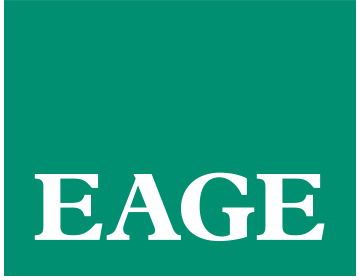Welcome to the latest newsletter prepared by the EAGE A.I. Committee this year. As a group of EAGE members and volunteers they help you navigate the digital world and find the bits that are most relevant to geoscientists.
You are welcome to join EAGE or renew your membership to support the work of the EAGE A.I. Community and access all the benefits offered by the Association.
EAGE Membership Benefits: Join or Renew
Curious to know all EAGE is doing for the digital transformation?
Visit the EAGE Digitalization Hub
![]()
Diffusion Models
Credits: Paul Zwartjes
![]() What: Some developments in A.I. are simply amazing. Like diffusion models. The maths are intriguing, the result are spectacular. They take image generation to a whole new level entirely and put Generative-Adversial-Networks (GANs) and Variational Auto-Encoders in the category of “yeah, we tried those ideas too”. Several institutes are working on combining text interpretation and image generation into network that can generate text and videos based on written words and you can bet that this is a game changer for the digital design industry.
What: Some developments in A.I. are simply amazing. Like diffusion models. The maths are intriguing, the result are spectacular. They take image generation to a whole new level entirely and put Generative-Adversial-Networks (GANs) and Variational Auto-Encoders in the category of “yeah, we tried those ideas too”. Several institutes are working on combining text interpretation and image generation into network that can generate text and videos based on written words and you can bet that this is a game changer for the digital design industry.
- Examples : DALL-E 2 by OpenAI and Imagen by Google.
- Explanation: https://lilianweng.github.io/posts/2021-07-11-diffusion-models/
A really short explanation is that diffusion probabilistic models are parameterized Markov chains models trained to gradually denoise data. This exciting new development already has its first application in geophysics, with an application to seismic data processing problems by Durall et al.
![]()
Probabilistic Machine Learning: Advanced Topics
Credits: Lukas Mosser
![]() What: As a follow up to the excellent first edition Probabilistic Machine Learning, Kevin Murphy has released a second volume titled “Probabilistic Machine Learning: Advanced Topics”
What: As a follow up to the excellent first edition Probabilistic Machine Learning, Kevin Murphy has released a second volume titled “Probabilistic Machine Learning: Advanced Topics”
This edition will cover fundamentals, inference, prediction, generation, discovery and action as key topic areas. For the engaged practitioner you will find many relevant concepts such as Bayesian statistics, Markov Chain Monte Carlo, Gaussian Processes, Interpretability, Generative Models, Causality and much, much more.
The full edition is set to release in early 2023 and is available as a draft. https://probml.github.io/pml-book/book2.html
![]()
RedFlag – a new python package for machine learning input quality checks
Credits: Ashley Russell
![]() What: The famous Matt Hall, the creator behind softwareunderground, has a new python package that aims to catch data preparation problems automatically to try and eliminate data biases in machine learning models. The package is newly released and seeking contributions – so if you are interested in helping out head over to Github: https://github.com/agilescientific/redflag
What: The famous Matt Hall, the creator behind softwareunderground, has a new python package that aims to catch data preparation problems automatically to try and eliminate data biases in machine learning models. The package is newly released and seeking contributions – so if you are interested in helping out head over to Github: https://github.com/agilescientific/redflag
Additionally a full blog post with examples can be found on Matt’s blog: https://agilescientific.com/blog/2022/8/29/a-machine-learning-safety-net
![]()
Discover EAGE Learning Resources on A.I. and machine learning
EAGE Digitalization Conference 2023
This newsletter is edited by the EAGE A.I. Committee.
| Name | Company / Institution | Country |
|---|---|---|
| Anna Dubovik | WAIW | United Arab Emirates |
| Jan H. van de Mortel | Independent | Netherlands |
| Jing Sun | TU Delft | Netherlands |
| Julio Cárdenas | Géolithe | France |
| George Ghon | Capgemini | Norway |
| Lukas Mosser | Aker BP | Norway |
| Oleg Ovcharenko | NVIDIA | United Arab Emirates |
| Nicole Grobys | DGMK | Germany |
| Roderick Perez | OMV | Austria |
| Surender Manral | Schlumberger | Norway |






